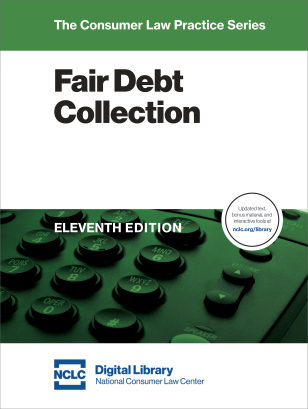In Sheriff v. Gillie, 578 U.S. __ (2016), a unanimous Supreme Court on May 16 held in a narrowly-crafted decision that attorneys hired as special counsel by the Ohio Attorney General’s Office for the collection of debts owed to state institutions do not violate the Fair Debt Collection Practices Act (FDCPA) when they use the Ohio Attorney General’s letterhead together with a disclosure that they are acting as special counsel.
Ohio law authorizes the Attorney General’s office to hire special counsel on an independent contractor basis to collect debts that are owed to state agencies and institutions, such as state universities and state-run hospitals. These independent contractors are required to use the Attorney General’s letterhead when contacting consumers about debts owed to state institutions. The letter mailed to respondent Hazel Meadows used the Attorney General’s logo at the top and in the signature block included the statement "Special Counsel to the Attorney General for the State of Ohio." Similarly, the letter mailed to respondent Pamela Gillie used the Attorney General’s logo at the top and in the signature block included the statement "Outside Counsel for the Attorney General’s Office." Gillie’s letter also directed her to send payment to special counsel’s law firm.
The first question certified by the Supreme Court was whether special counsel qualify as "any officer or employee of the United States or any State to the extent that collecting or attempting to collect any debt is in the performance of his official duties" under 15 USC § 1692a(6)(C) and is therefore excluded from the FDCPA’s definition of a debt collector. The Supreme Court held that it was not necessary to reach this question. Since the Supreme Court did not specifically address this issue, the Sixth Circuit’s holding that special counsel are not officers and are thus subject to the FDCPA prohibitions remains valid precedent. Gillie v. Law Office of Eric A. Jones, LLC, 785 F.3d 1091, 1105 (6th Cir. 2015). For more on whether a collector qualifies as a government officer or employee, see NCLC’s Fair Debt Collection § 4.3.4.
The second question certified was whether use of the Attorney General’s letterhead by special counsel is false or misleading under 15 USC §§ 1692e, 1692e(9), or 1692e(14). (See Fair Debt Collection § 5.5 for a discussion of these prohibitions). The Supreme Court held that "petitioners complied with the [FDCPA], as their use of the Attorney General’s letterhead accurately conveys that special counsel act on behalf of the Attorney General." In reaching this conclusion, the Court highlighted the close working relationship between special counsel and the Attorney General’s Office and limited the potential application of its reasoning and holding to the facts in this case by noting that "considerations relevant to [special counsel] may not carry over to other debt-collector relationships." The Court’s holding was also influenced by concerns about federalism and the desire to avoid interpreting federal law in a way that interferes with legitimate state government debt collection activities.
Discounting concerns that the letterhead might cause consumer confusion, the Court concluded that these concerns were misplaced where the Attorney General’s Office promptly and readily confirmed the relationship with special counsel when consumers inquired about whether they were being scammed. In reaching this conclusion, the Supreme Court declined to consider the “least sophisticated consumer analysis" adopted by many of the Circuits (see Fair Debt Collection § 5.2.1) or to address the Petitioner’s argument that potentially false or misleading statements should be viewed from the perspective of “the average consumer who has defaulted on a debt" rather than the “least sophisticated consumer." The Court also dismissed concerns about consumer intimidation where the letters did not threaten “criminal prosecution, civil penalties, or any action whatsoever."
Because it concluded that the letters sent by special counsel were accurate, the Supreme Court declined to reach the issue of "whether a false or misleading statement must be material to violate the FDCPA." See NCLC’s Fair Debt Collection § 5.5.2.8.


